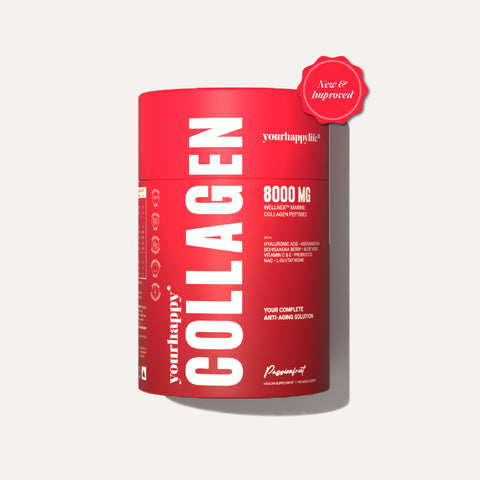News
Here Are 7 Ways Your Digestive Health Affects Your Athletic Ability

Did you know that gut health has various positive implications for athletic performance? Athlete performance, physical capacity, and recovery time are all affected by the state of your gut and the bacteria that live there.
Your body is naturally a communal resource. For example, billions of bacteria live in your colon, all working together to keep you in excellent shape. In addition, diet, stress, and exercise affect the gut microbial ecology.
Exercising for fitness indeed has many positive effects on the digestive health tract. Germs may also influence athletic performance, so it's a two-way street.
1. Nutrition, Gut Microbes, And Athletic Performance

Brain health, gut health, and athletic performance are linked. The microbes in your gut play a crucial role in your workout performance, from regulating your energy levels to speeding up your recovery time.
The microbes in the gut play a crucial role in producing SCFAs and other significant nutrients used in several essential physiological functions. For example, the body must burn more energy to meet its increased energy needs due to exercise-induced increases in metabolic activity.
An active workout routine will only help your gut bacteria thrive. Eating well-liked foods by the microbes in your digestive tract, especially fiber, will enhance your glucose metabolism and SCFA production, resulting in increased muscle turnover and better overall health. Butyrate is good for your body and the bacteria in your gut.
Butyrate has several functions and benefits digestive health, and exercise increases production. This is because the cells lining your digestive tract rely on it as a critical energy source. In addition, butyrate has broad anti-inflammatory and disease-preventative effects.
Also Read: The Importance Of Good Gut Health And Immune Function
2. Recovery From Lactate And Muscular Fatigue

Even while exercise is crucial to good health, it has the unfortunate side effect of causing the production of lactic acid by the muscles. Muscle discomfort and temporary soreness have been linked to lactic acid buildup. Lactate is favored by the type of gut bacteria known as Veillonella atypica, which has been shown to increase exercise capacity.
The ability of this microbe to ferment lactate into the short-chain fatty acids propionate and acetate has earned it widespread recognition. Studies on mice show that giving them a strain of Veillonella found in marathon runners increases their ability to run for longer without tiring.
This gut bacteria has the potential to become a probiotic that increases athletic performance since it is common in elite athletes but uncommon in sedentary people. In addition, people with metabolic diseases like obesity and type 2 diabetes, who cannot get decent results from exercise, would greatly benefit from this.
3. Microbiota Diversity And Exercise

Exercise is associated with a rise in the population of beneficial bacteria in the gut. Rich and diverse microbiomes are associated with improved glucose metabolism and increased synthesis of short-chain fatty acids.
Exercise also increases the number of bacteria that produce butyrate, such as Akkermansia muciniphila, a true gem. Athletes have been found to have a lower risk of metabolic disease due to the presence of this microbe.
Exercise enhances health and physical performance. One of the primary ways it does this is by expanding the variety of microorganisms in the digestive tract.
Also Read: Try A Neuroscientist's Three-Step Mindfulness Exercise
4. The Balance Between Drinking Water And Sweating

Working out is thirsty work; you lose water via perspiration and breathing, placing you at a higher risk of dehydration, especially after vigorous or prolonged physical activity. However, water is essential for life and promotes a healthy digestive system. Electrolytes, which include sodium, potassium, and chloride, are charged minerals that help maintain fluid balance.
During exercise, the gut flora helps hydrate. In other words, it allows the body to use the water it takes in. Therefore, keeping a good water balance is crucial since workout performance suffers from dehydration.
According to research, the microbes in the gut regulate hydration levels by affecting the absorption of electrolytes like sodium and potassium via the gut lining. Water absorption and secretion are two aspects of mucosal hydration that support normal intestinal barrier function.
Also Read: The Best and Worst Times of Day to Hydrate
5. Supplementing With Probiotics To Boost Athletic Ability

When you exercise, your body's energy needs rise, your metabolism speeds up, and you need more nutrients than usual to keep up with your body's demands. However, poor nutrition and overtraining can negatively impact many aspects of health, including the gut.
However, probiotics are good for digestive health. In addition, these foods support healthy gut microbiota because they contain a living supply of beneficial bacteria that boost the immune system, especially during HIIT (high-intensity interval training).
There is evidence that probiotics can improve athletes' health, performance, and recuperation. The probiotics' effect on the gut microbiota increases diversity, which helps avoid illnesses that might hinder training and performance. Here are some examples of probiotic foods:
- Fermented foods include things like kimchi, yogurt, and lacto-fermented pickles.
- Kefir is made with milk, water, sauerkraut, and yogurt.
6. Get Some Shut-Eye To Recharge Your Body

Sleep issues, such as sleep apnea and tiredness, may be upsetting and tiring, and inflammation and obesity are two factors that can contribute to these issues. However, some research has shown that physical activity alters the gut microbiota to enhance sleep quality.
Chemicals like serotonin, GABA, and cortisol, which affect your sleep-wake cycle and ability to fall asleep, are tightly regulated by gut bacteria. However, recent scientific investigations have proven that people with a wider variety of gut flora have improved sleep quality.
It's essential for everyone, from complete beginners to expert pros, to get a good night's sleep every night. Taking care of your digestive system, getting enough shut-eye, and maximizing your potential will help you succeed (or even score).
Also Read: How Muscular Weakness Affects The Immune System
7. Severe Exhaustion

High-intensity exercise, especially at a professional level or in hot weather, might increase the risk of exertional heat stroke, which happens when the body's core temperature rises beyond 40.5 °C. This is a major medical issue.
Endotoxemia is a disorder in which the gastrointestinal barrier is disrupted, enabling toxins to enter the bloodstream and trigger an inflammatory response. This can be lethal if the situation is serious enough. Exertional heatstroke may have early warning signs, and gastrointestinal distress is one of them. Beware of:
- Shaking, nausea, and vomiting are some of the symptoms.
- Irritability
- diarrhea
- Confusion
- Body temperature rise (over 40.5 degrees Celsius).
Meals may play a significant role in avoiding exertional heatstroke by restoring intestinal integrity, which may be compromised by poor hydration or food. In addition, the intestinal barrier and microbial diversity improve with a plant-based diet.
The Takeaway
YourHappy Collagen (Advanced 2.0)

Gut health is linked to physical activity because your gut microbiota makes nutrients your body needs to function correctly when working out. For example, gut microorganisms may be necessary for digesting fiber, but the gut microbiome dramatically affects how well athletes do and how quickly they recover. Exercising has several advantages for the microbiome, including favorable impacts on the gut flora.
FAQ
What factors affect athletes' performance?
Physical fitness includes muscle mass, skill development, strength, flexibility, and stamina. These five traits define your sport, position, and ability level. Each of these factors can affect your athletic performance.
Why is gut health so important for athletes?
Gut health is linked to exercise because your gut bacteria produce essential nutrients. For example, v. atypical is a lactate-fermenting bacteria in high-level athletes and is helpful for performance and recovery.
Why do athletes need good digestion?
Your digestive system absorbs nutrition, removes toxins, and boosts your immune system. However, a weak digestive system can also affect mood, attention, and energy.





































